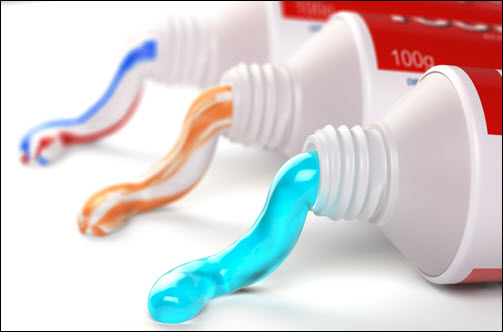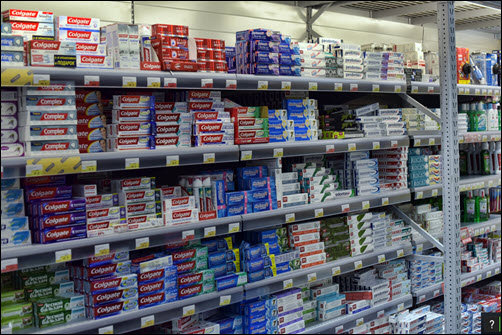Choosing the Best Toothpaste
When walking down the dental health aisle you see many types of toothpaste. Whether looking for something child-friendly, for sensitive teeth, or a basic product to clean your teeth and protect against cavities, there are many choices. So, how do you know the best toothpaste for yourself and your family? Is there a “secret code” to determining what is best? If you find selecting a toothpaste is bit overwhelming, these tips will make it easier.
How to Decide on the Best Toothpaste for You
1. The ADA Seal of Approval –
Start by weeding out any without the American Dental Association stamp of approval. The ADA seal lets you know the paste has been evaluated for effectiveness and safety.
2. Look for fluoride –
Fluoride isn’t just important for children. No matter what toothpaste you use, be sure it has fluoride as it is a cavity-fighting mineral. It also helps protect your enamel. According to the ADA, when choosing a toothpaste look for one that has a minimum of 1,000 parts per million fluoride. Not using fluoride can result in more cavities and dental health issues.
3. Watch out for abrasive elements! –
Additives such as whiteners are especially abrasive to the surface of your teeth. They can be even more damaging if you have sensitive teeth. If you are unhappy with the color of your teeth, talk to your dentist about procedures that are safe. One commonly added abrasive to watch for is sodium lauryl sulfate (SLS). The SLS makes the toothpaste foam more but is a known irritant.
4. Toothpaste for sensitive teeth –
Are your teeth bothered by hot or cold temperatures? Then use toothpaste for sensitive teeth. These pastes should contain potassium nitrate or strontium chloride. Keep in mind, it may take up to four weeks before you notice a difference in decreased sensitivity.
5. Look for something with tartar control.
While many of today’s toothpastes are crafted with tarter-control elements, they are not all the same. Look for one that contains pyrophosphates, zinc citrate or triclosan as they have proven to be effective against tartar buildup.
6. Avoid Sweeteners –
Some toothpastes have sweeteners added to make the paste taste better. However, these sweeteners can encourage bacteria and plaque, thus leading to tooth decay, cavities, damaged enamel, and tooth discoloration. While sweeteners are especially common in children’s toothpaste, they can be found in many other dental products, so pay attention!
These are but a few things to keep in mind when buying toothpaste. If you have questions or concerns, don’t hesitate to call us at Shpritz Family Dental. We are happy to help our patients make decisions that promote healthy smiles.




